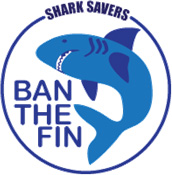
![]()
Home > Amos Nachoum > Big Animals Expeditions
Nile Crocodile
Big Animals Expedition, Botswana

| Nile Crocodile - Big Animals Expedition | |
|---|---|
| Worldwide Nile Crocodile experience | 5 years |
| where | Okavango Delta, Botswana |
| max no. of guests | 3 guests |
| expedition leader | Amos Nachoum |
| departure | 2016: July 6-13 and 12-19 |
| duration | 8 days |
| pricing | 2016: $18,900 |
| activities | crocodile diving, photography, exploration |
| temperature | Water 58 – 62°F (14 – 17°F) Land 50 – 80°F (10 – 27°F) |
 Snorkeling and photography adventure within one paradox after another
Snorkeling and photography adventure within one paradox after another
The best and only time to be in the water with the Nile croc is in June and July - during winter - when the water in the Okavango Delta is clear enough (15-20 feet) and cold enough (55-60°F).
When the water is cold, crocs like to sunbathe, so we will first see them on the surface. When they hear or see us arrive, they immediately dive for safety. However, being reptiles, the cold water makes crocs lethargic and slow.
Crocs are harmless underwater because their eyesight is poor - they evolved in murky water, never needing good eyesight. Instead, they have great sensors for touch. Since their eyesight is limited they cannot see us getting close.
Photographic Recommendations
The best underwater lens for photographing crocodiles is the 16-35mm canon or 14–24mm nikon, dslr full frame for both camera systems. surface lenses will vary from 70–200mm up to 300mm. in the water, strobes and video lights are recommended at all times. You will be close enough to allow the light to reflect back from the crocodile’s bright eyes and its menacing row of pure white teeth.
There will also be opportunities to photograph the crocs resting on the riverbank before they race into the water to avoid us. We will also set up fish eagle hunting ops. In addition, there are often families of hippos that can be seen playing or sleeping in the water, standing on small beaches in the thick papyrus vegetation, or hanging on small river beaches.
Accommodations
A mobile safari camp will be our home base for the week. Each guest will have their own private tent furnished with a bed complete with a comfortable mattress, pillows, fresh linens, and wool blankets. Attached to each tent is a shower and a seat toilet. our dedicated safari crew will make sure warm water is available in your tent every morning for washing up, and each evening after we return from diving.
Our safari camp will have a generator that can be used to run refrigerators and lights and will also allow us to charge our computers and batteries.
A separate tent will be set up as a charging station for all our gear. There will also be one large dining tent that opens up to a gorgeous view of the river. Please remember that we are in an extremely remote area, and a satellite phone will be the only way to stay in touch with the outside world should you need to do so. Anything that you might need and/or want during your time in the safari camp must be brought with you, because the nearest shopping center is about 500 miles away.
What to Bring
The water temperature averages 55 to 62 F (13 to 17c) requiring a 5 to 7mm wetsuit with a hood and gloves or a semi-dry suit. Being warm in the water allows complete focus on all the action.
This expedition is in remote Botswana, Africa, a country where there is no dive shop to replace broken gear. All diving equipment should be serviced prior to departure to be in good operational condition. This includes your regulator, Bcd, mask and fins, all serviced with new straps. Bring a strong, reliable submersible underwater light. The river is never deeper than 30 feet (10 m) so a dive computer is not necessary.
Additional gear includes sun block, hats, polarized sunglasses, and soft dry waterproof bags for cameras and other valuables.
While river cruising between dives, the surface temperature can be cold, ranging from 50-80F (10-27C). Bring a windbreaker or water/wind proof coat to wear over your clothes or wetsuit. When dry, wear a fleece or long-sleeved sweatshirt with a wool cap during early morning on the boat and around the evening campfire. clothing at the safari camp is always casual. Mornings and evenings are cold, so dress in layers to keep warm.
General Itinerary
Day 1: Arrive: Johannesburg. spend overnight at airport hotel.
Day 2: Fly from Johannesburg to maun, Botswana. We will pick you up at the airport for the five-hour drive and cruise to our safari camp.
Day 3 - 7: Five days of extraordinary crocodile diving and adventure in the okavango river with nile crocs.
Day 8: Depart: 30-minute boat ride and five-hour car ride to maun for flight to Johannesburg. connect to your flight to your next destination.
******
Tour price includes:
- 6 nights at our safari camp– accommodations plus all meals
- 5 days of exclusive crocodile diving photo services with Amos and Walter
- All diving equipment, including tanks and weights
- medic escort
- Film permits, taxes and fees
- Excess gear transport, ground transport across Botswana
Not included in Tour Price:
- international flight
- charter flight in Botswana
- hotel overnight in Johannesburg
- Gratuities to crew
- items of personal nature such as phone calls, laundry and drinks
- items not mentioned above
*Subject to change, inquire on availability*
For more information
Contact:
Dive Discovery
@
1 800 886-7321
(415) 444-5100
or
Request Info
